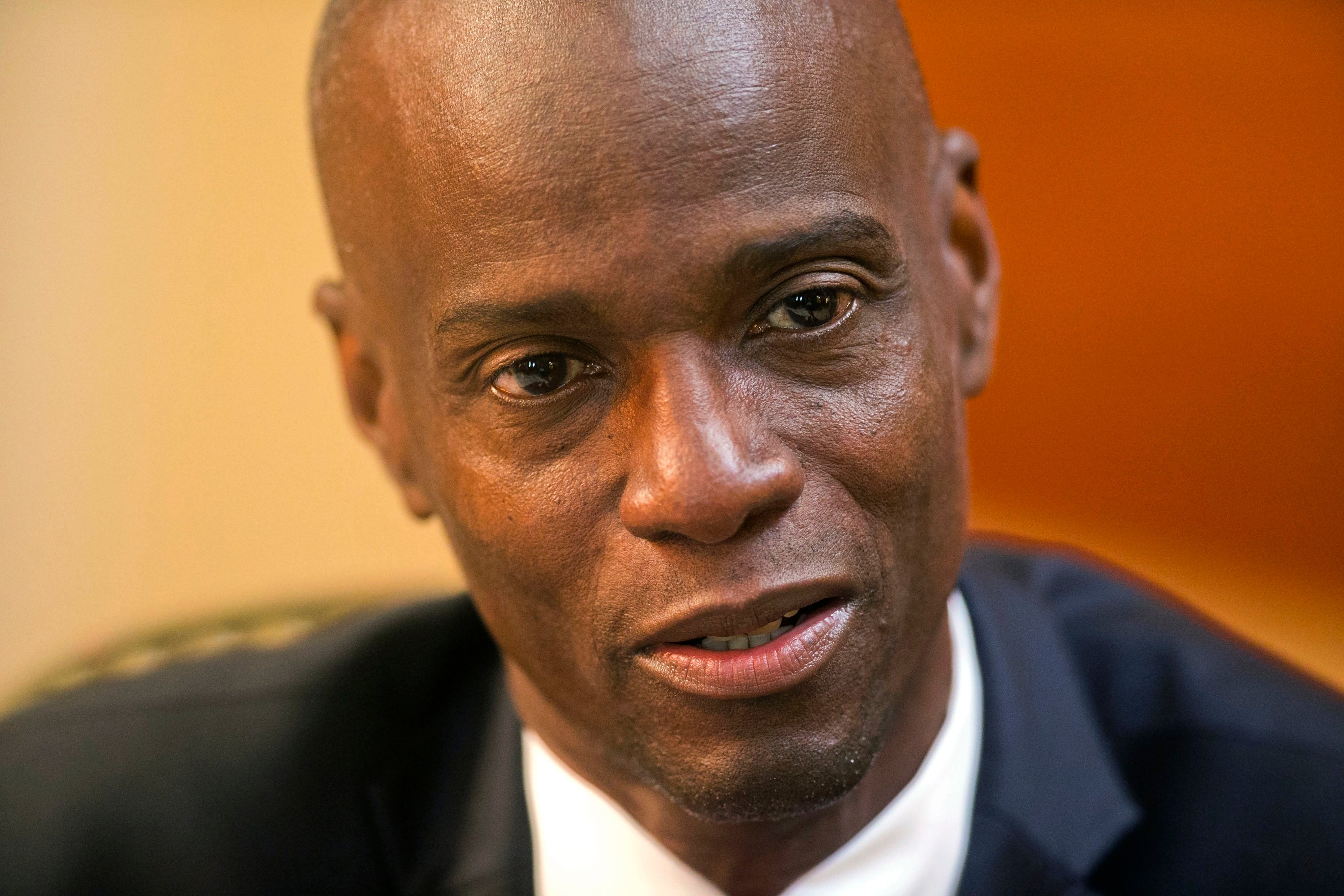Former DEA informant pleads guilty in 2021 assassination of Haiti’s president
A former confidential informant for the U.S. Drug Enforcement Administration has pleaded guilty to conspiring to assassinate Haitian President Jovenel Moïse, whose killing in 2021 caused unprecedented turmoil in the Caribbean nation

Your support helps us to tell the story
From reproductive rights to climate change to Big Tech, The Independent is on the ground when the story is developing. Whether it's investigating the financials of Elon Musk's pro-Trump PAC or producing our latest documentary, 'The A Word', which shines a light on the American women fighting for reproductive rights, we know how important it is to parse out the facts from the messaging.
At such a critical moment in US history, we need reporters on the ground. Your donation allows us to keep sending journalists to speak to both sides of the story.
The Independent is trusted by Americans across the entire political spectrum. And unlike many other quality news outlets, we choose not to lock Americans out of our reporting and analysis with paywalls. We believe quality journalism should be available to everyone, paid for by those who can afford it.
Your support makes all the difference.A former confidential informant for the U.S. Drug Enforcement Administration pleaded guilty Tuesday to conspiring to assassinate Haitian President Jovenel Moïse, whose killing in 2021 caused unprecedented turmoil in the Caribbean nation.
Joseph Vincent, a dual Haitian-American citizen who lived in the U.S. and attended meetings in South Florida and Haiti ahead of the assassination, is the fourth of 11 defendants in Miami to plead guilty. He faces a maximum sentence of life in prison on charges including conspiracy to kill and kidnap a person outside the U.S. and conspiracy to provide material support and resources.
According to authorities, about 20 Colombian citizens and several dual Haitian-American citizens participated in the plot. The conspirators initially planned to kidnap the Haitian president but later opted to kill him. Investigators allege the plotters had hoped to win contracts under Moïse's successor.
Vincent, wearing a prisoner’s beige shirt and pants, pleaded guilty at a hearing before federal Judge José E. Martínez that lasted 20 minutes. Seated next to his attorney, Kenneth Swartz, he was handcuffed and had shackles on his ankles.
“Guilty, your honor,” Vincent responded after the judge asked him how he would plead.
Vincent said he had reached a plea agreement with the prosecutors, something defendants often do in hopes of receiving a lighter sentence. Under the terms, he agreed to collaborate with the investigation, and the government said it would withdraw two accusations of conspiracy to commit offenses against the United States.
The judge set his sentencing hearing for Feb. 9, 2024.
The other defendants who have pleaded guilty are retired Colombian army officer Germán Alejandro Rivera Garcia, who was sentenced to life in prison in October; Haitian-Chilean businessman Rodolphe Jaar, who also was sentenced to life in prison in June; and former Haitian senator John Joël Joseph, who was detained in Jamaica before being extradited to Miami last year and is set to be sentenced on Dec. 19.
They are all part of what U.S. prosecutors have described as a conspiracy hatched in Haiti and Florida that ended with mercenaries gunning down Moïse at his private home near the Haitian capital of Port-Au-Prince on July 7, 2021. He was 53.
Vincent was close to Haitian-American suspects James Solages and Christian Emmanuel Sanon, a South Florida resident and pastor whose ambition to replace Moïse as president led to the assassination, according to charges filed by the prosecutors. Both were among the first arrested after Moïse was shot 12 times at his home.
After the killing, Vincent maintained his innocence and told a Haitian judge that he was a translator for the Colombian soldiers accused of storming the president’s residence and killing him.
More than 40 suspects have been arrested in the case in Haiti, most of them shortly after Moïse was fatally shot in the attack that also injured his wife, Martine Moïse. Among those detained are 18 former Colombian soldiers accused of taking part in the plot and several high-ranking Haitian police officers.
In Haiti, five judges have been appointed to the case and four of them have stepped down for various reasons, including fear of being killed.
In the two years following the assassination, Haiti has experienced a surge in gang violence that led the prime minister to request the immediate deployment of a foreign armed force in October 2022. The U.N. Security Council voted to send a multinational force led by Kenya to help fight gangs in October of this year.
The deployment has been delayed, however. Kenya has said its personnel needs more training and funding, and a local high court has extended orders blocking the deployment, with a hearing scheduled for late January. No deployment date has been announced.